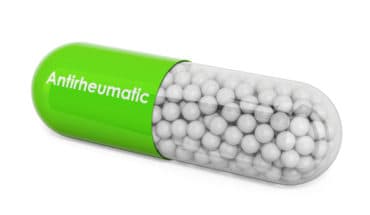Sperm counts in men worldwide have declined by half over the past 50 years and are continuing to fall. ‘It does seem that sperm counts are falling, but it is hard to say exactly why that is happening,’ says Dr Jane Stewart, a consultant in reproductive medicine at Newcastle Fertility Centre. ‘The studies are conflicting. Lots of environmental factors have been blamed for the fall, including industrial pollutants, but the cause is still a mystery.’ Differences in how male fertility is recorded may also be skewing the results
The average European sperm count is in the region of 70 million per millilitre. According to the World Health Organisation, a man needs a sperm count of at least 20 million sperm per millilitre of ejaculate to have a chance of conceiving a child without medical intervention.
Sperm, which are the swimming cells that carry a male’s DNA, are continually produced in the testicles at the rate of up to 100 million every day. The process, which is controlled by the endocrine system under the influence of the male sex hormone, testosterone, takes about 60 days. It then takes a further 10 to 14 days for the sperm to pass through the epididymis, which is where they mature, before they can leave the body via ejaculation.
Advancing age also leads to poorer quality semen. Sperm cells are constantly being made from scratch through the process of cell division, so mutations can creep in as a man ages and the process begins to go awry.
Getting older is not something you can do anything about, but there are plenty of ways that men can optimise the quantity and quality of their sperm.
Age
Men have a biological clock just like women. Studies have shown that men’s fertility starts to decline after the age of 35 and female partners, regardless of their own age, have less chance of getting pregnant. One French study, published in published in the journal Fertility and Sterility in 2005, found that women younger than 30 years old was 25 per cent less likely to conceive a baby if her male partner was 40 years or older. A woman aged 35 to 37 years was 50 per cent less likely to conceive if the male partner was over 40 years old. Studies have shown that the genes contained in the sperm of older men have a greater chance of being abnormal. A study at the University of California, Berkeley found that the sperm of older men were less mobile and less able to move in a straight line.
Tighty whiteys
Close-fitting underwear is going to hinder your chance of conceiving a child. That’s the conclusion of a large-scale study of 2500 men published in the journal Human Reproduction in June 2012 by researchers at the University of Sheffield and the University of Manchester. Dr Allan Pacey, one of the lead researchers, explains: ‘What we found is that the single biggest lifestyle factor affecting sperm count was tight underwear.’ The reason is probably related to underwear pulling the testicles closer to the body, reducing air circulation and causing the temperature of inside the testes to rise. ‘The scrotum sac hangs outside the body for a reason because testes work at an optimum temperature of around 35 degrees centigrade, or two degrees cooler than body temperature,’says Dr Pacey. Testes that are too hot produce less sperm because the seminferous epithelium, which lines the tubules where cell division takes place, is sensitive to elevated temperatures.
Ill health
A huge number of illnesses can affect male fertility. Cardiovascular disease, which affects blood circulation, can lead to impotence and failure to maintain an erection. Diabetes, when the body cannot control blood sugar levels and its complications, is another major cause of impotence. A body of research shows that sperm produced by a man with diabetes are more damaged than those from a non-diabetic and less able to fertilise an egg.
‘Many different types of medication can affect male fertility through different ways,’ says Dr Jane Stewart. Some, some like the antiobiotic erythromycin are toxic to the testicles and damage cells that produce sperm – sometimes permanently. Others work indirectly, interrupting hormonal signals that stimulate the cells in the testicles which can result in lower sperm counts, like antipsychotic drugs and trycyclic anti-depressants.
Some medications may act to decrease male sexual interest in intercourse, or libido. Other medications may interfere with the ability of a man to get an erection or ejaculate. The antiobiotic tetracycline can block fertilisation.
Calcium channel blockers, which are used to treat high blood pressure, have been shown in some studies to block the ability of the sperm to fertilize an egg.
Hotting up
Anything that raise the temperature of your testicles is going to have a temporary impact on sperm production, even sitting on a crowded commuter train for long periods in a heatwave. Frequent use of hot tubs or saunas may lower your sperm count, according to studies. Spending more than 30 minutes at a time in water heated to 102 degrees Fahrenheit (40 degrees Celsius) or more may lower the sperm count significantly.
Let the sun shine in
Vitamin D – the sunshine vitamin – is essential to sperm health. In 2006, it was found that human sperm had multiple Vitamin D receptors on its head and nucleus, suggesting that the cell needs this vitamin to function. Getting enough UV rays is key to the health of male sperm, according to research presented to the Fertility Society of Australia conference in 2008. Laura Thomson, a doctoral student from University of Sydney found that vitamin D deficiency – caused by too little sun exposure – played a a significant role in determining male fertility.
Thomson’s study involved screening 794 men who attended the same fertility clinic in Sydney in Australia. Nearly a third, which is similar to the average, were found to suffer from too little Vitamin D which is synthesised in the skin during exposure to sunlight. A group of 123 of the vitamin D deficient men in the Australian study were followed for 3 months as they took vitamin D containing multivitamin supplements, antioxidants and lost weight. Follow-up tests showed improvements in sperm shape and a 75 per cent drop in sperm DNA fragmentation, when the DNA is damaged. In a quarter of these men, pregnancy was successful.
Moderate alcohol and quit the weed
Alcohol is a toxin that kills the cells that generate sperm. Too much alcohol can reduce sperm count and change the shape of sperm cells, making them less effective at fertilising an egg. The effects won’t be noticeable unless you drink more than eight units in a day, according to studies.
Most alcoholics have a very low sex drive because excessive alcohol over a long period of time raises levels of female hormone oestrogen in the male body.
Current NICE guidelines remain that men who want to conceive should give up smoking. However, If you want to have a child, give up smoking at least three months before trying to conceive with your partner. Avoid all recreational drugs.
Bodybuilding
The trend for bulking up with the help of anabolic steroids is having a worrying effect on men’s fertility up and down the country. ‘In the North East, we are certainly noticing an increase in the number of men who do use steroids and come to us with fertility problems,’ says Dr Jane Stewart. High protein shakes should not cause the problems but there is increasing concern that they may contain ingredients which are not on the ingredients lists.
Steroids, which mimic the male hormone testosterone, cause an increase in muscle mass but they also trick the body into thinking that the testes, which produce natural testosterone, are producing too much. ‘Production of sperm can shut down completely,’ says Dr Stewart. ‘Men may notice that their testes are shrinking.’
‘Sadly, infertility caused by use of steroid drugs is not always reversible,’ explains Dr Stewart. However, most men who stop taking steroids will see a gradual return to normal over several months or years. Build muscle naturally with exercise and weight training.
- New lipid-based pathway discovered as key to memory formation - 25th June 2025
- Crucial link could explain how Alzheimer’s takes hold - 25th June 2025
- Understanding Your Mind Can Improve Daily Life - 25th June 2025






